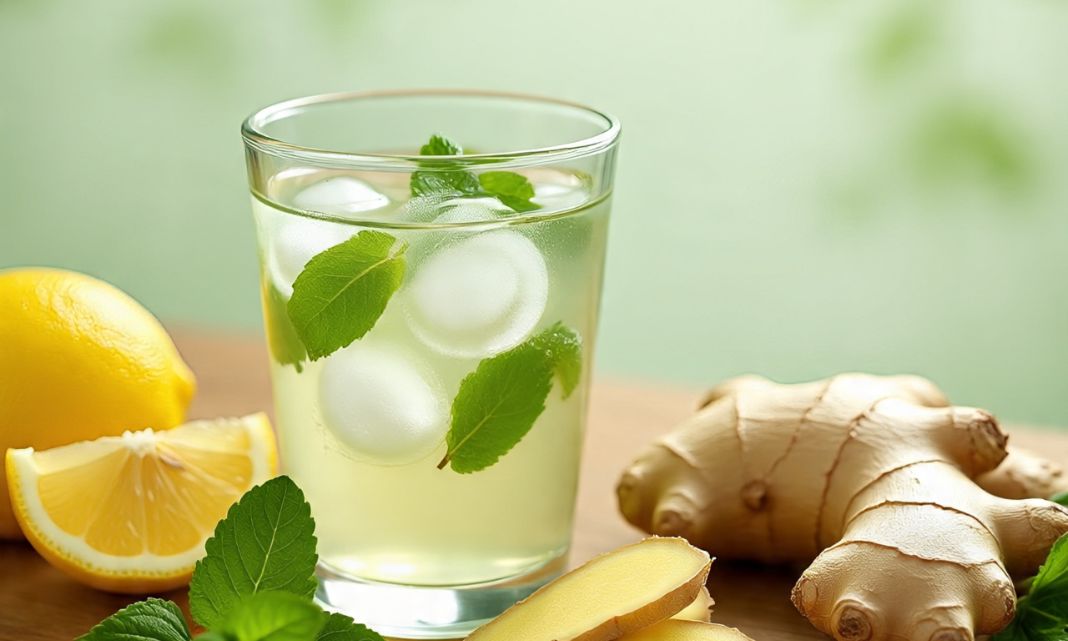In the vast world of natural remedies and herbal discoveries, few names have sparked as much recent interest as Lyposingrass. While still relatively new in mainstream conversations, experts in nutrition, herbal medicine, and plant biochemistry are paying close attention to its unique profile of natural compounds. Lyposingrass is believed to contain a rich combination of bioactive constituents that may support overall health, provide energy balance, and contribute to modern wellness practices.
This article explores Lyposingrass from multiple angles—its origins, natural compounds, scientific insights, potential benefits, and the future of its use in health and wellness.
Origins of Lyposingrass
Lyposingrass, as the name suggests, is a hardy grass-like plant that thrives in nutrient-rich soil and temperate climates. Historically, communities in regions where Lyposingrass grows naturally have used it in teas, infusions, and medicinal preparations. Traditional healers valued it for its revitalizing qualities and its ability to “balance the body’s energy.”
Modern researchers have recently isolated several natural compounds within Lyposingrass that may explain these traditional claims. Much like how the discovery of catechins in green tea or curcumin in turmeric redefined their scientific reputation, Lyposingrass is undergoing a similar renaissance.
The Natural Compounds in Lyposingrass
One of the reasons Lyposingrass has attracted global interest is its diverse chemical profile. While scientific names may vary depending on laboratory studies, most researchers agree that Lyposingrass contains four broad categories of natural compounds:
1. Flavonoids
Flavonoids are plant-based antioxidants found in many herbs, fruits, and vegetables. In Lyposingrass, they appear in particularly high concentrations. Antioxidants are crucial in neutralizing free radicals, which, if left unchecked, contribute to cell damage, aging, and various chronic diseases.
Experts note that the flavonoid blend in Lyposingrass resembles a cross between what is found in citrus peels and leafy greens, making it a potent supporter of cellular health.
2. Saponins
Saponins are natural compounds known for their soap-like foaming quality when mixed with water. In herbal medicine, they are often associated with immune support and cholesterol management. Early laboratory studies of Lyposingrass saponins suggest they may help regulate lipid levels in the body, which is why some wellness practitioners are exploring its potential role in weight management and cardiovascular health.
3. Alkaloids
Alkaloids are naturally occurring compounds that can have powerful physiological effects. While caffeine is the most widely recognized alkaloid, Lyposingrass contains a unique non-stimulant alkaloid that is believed to influence metabolic processes. Unlike caffeine, this alkaloid does not overstimulate the nervous system, making Lyposingrass a gentler alternative for individuals sensitive to stimulants.
4. Essential Oils and Aromatic Compounds
Another fascinating aspect of Lyposingrass is its subtle fragrance, which comes from naturally occurring aromatic compounds. These oils may contribute to its calming properties when brewed as tea or inhaled in herbal preparations. Some researchers are investigating whether Lyposingrass essential oils have anti-inflammatory or antimicrobial benefits.
Health Benefits Attributed to Lyposingrass Compounds
The natural compounds in Lyposingrass are believed to work in synergy, offering a variety of potential health benefits. Although large-scale clinical trials are still limited, preliminary research and traditional use suggest several promising effects:
1. Antioxidant Defense
The high flavonoid content in Lyposingrass makes it a strong candidate for reducing oxidative stress. This means it may help protect the body from environmental toxins, unhealthy diets, and stress-related cellular wear and tear.
2. Metabolic Support
Saponins and unique alkaloids in Lyposingrass are thought to support healthy metabolism by balancing lipid levels and aiding fat breakdown. Herbalists often link this to weight balance and energy regulation, making Lyposingrass appealing for wellness enthusiasts.
3. Digestive Health
Some users report that Lyposingrass teas and extracts ease digestion, reduce bloating, and calm gastrointestinal discomfort. This may be tied to its essential oils, which could have mild antispasmodic effects.
4. Immune System Boost
Saponins have long been associated with immune modulation. In Lyposingrass, they may work with flavonoids to enhance the body’s defense systems, helping it respond to infections and inflammation more effectively.
5. Stress Relief and Relaxation
The aromatic compounds in Lyposingrass appear to influence mood and relaxation. Anecdotal evidence suggests that drinking Lyposingrass tea before bed may promote restful sleep without the grogginess associated with sedatives.
Scientific Insights and Ongoing Research
While traditional wisdom points to Lyposingrass as a beneficial plant, modern science is working to validate these claims through controlled studies. Current areas of research include:
-
Cardiovascular health: Studying how Lyposingrass saponins influence cholesterol and blood vessel function.
-
Weight management: Investigating whether its alkaloid content plays a measurable role in fat metabolism.
-
Anti-inflammatory potential: Exploring whether its essential oils can reduce markers of chronic inflammation.
-
Antimicrobial effects: Testing Lyposingrass extracts against common pathogens to evaluate its protective properties.
Although results are still emerging, many nutrition experts believe Lyposingrass could follow the path of once-obscure herbs like ashwagandha or moringa—transitioning from traditional use to mainstream recognition.
How Lyposingrass Is Consumed
Like many functional herbs, Lyposingrass can be consumed in multiple forms:
-
Herbal Teas – The most traditional and accessible form, made from dried Lyposingrass leaves.
-
Capsules and Extracts – Concentrated forms for those seeking precise dosages.
-
Powders – Often added to smoothies or wellness drinks.
-
Essential Oil Distillates – Used in aromatherapy or diluted for topical use.
Experts recommend starting with natural teas before exploring concentrated extracts, as this allows the body to gradually adapt.
Safety and Side Effects
As with any natural compound, safety depends on dosage and individual health conditions. While Lyposingrass is generally regarded as safe, experts highlight a few considerations:
-
Digestive sensitivity: High doses may cause mild stomach upset in sensitive individuals.
-
Interactions: People taking blood-thinning medication or cholesterol-lowering drugs should consult a physician before use.
-
Pregnancy and lactation: Scientific data is limited, so medical advice is essential before use.
The guiding principle is moderation—like most herbs, Lyposingrass is most effective when integrated responsibly into a balanced lifestyle.
Environmental and Agricultural Impact
Lyposingrass is resilient and requires minimal pesticide or fertilizer use. This makes it a sustainable crop with potential to benefit both farmers and ecosystems. Because of its fast growth rate, it may also serve as a soil stabilizer, reducing erosion in vulnerable areas. Researchers are investigating whether cultivating Lyposingrass at scale could provide both health and environmental benefits.
The Future of Lyposingrass in Wellness
With growing global interest in plant-based health solutions, Lyposingrass is well-positioned to become a major player in the wellness market. Its diverse natural compounds, adaptability in agriculture, and history of traditional use give it a strong foundation for wider adoption.
Experts predict that future product lines may include:
-
Functional beverages with Lyposingrass extracts.
-
Nutraceutical blends targeting metabolism and immunity.
-
Topical applications harnessing its essential oils for skincare.
-
Clinical-grade supplements standardized for consistent saponin and flavonoid levels.
Conclusion
Lyposingrass is more than just a herbal trend—it is a plant with a scientifically intriguing set of natural compounds that align with modern health priorities. From antioxidant protection to metabolic support and stress relief, the synergy of flavonoids, saponins, alkaloids, and aromatic oils makes it a versatile candidate for wellness innovation.
As research deepens, Lyposingrass may well shift from traditional herbal use to mainstream health solutions, much like green tea, turmeric, or moringa once did. For now, its potential is clear: a natural, sustainable source of compounds that could support healthier living in the years to come.








